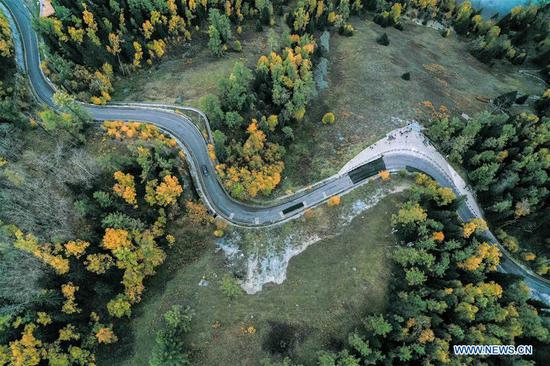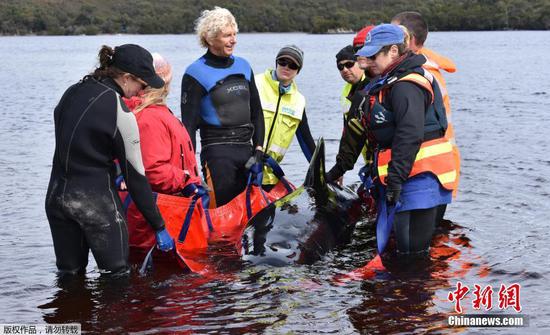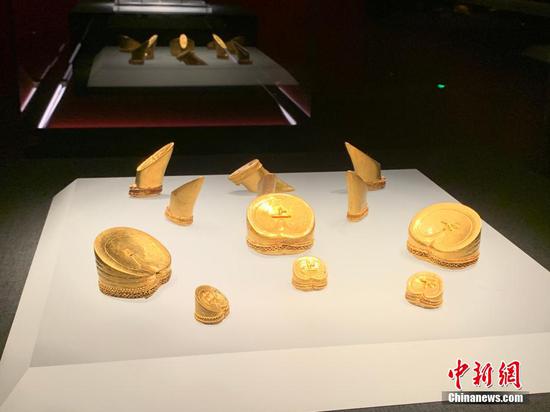![Photo taken on May 15, 2018 shows making process of a photonic quantum chip at Shanghai Jiaotong University in Shanghai, East China. [Photo/Xinhua] Photo taken on May 15, 2018 shows making process of a photonic quantum chip at Shanghai Jiaotong University in Shanghai, East China. [Photo/Xinhua]](http://image.cns.com.cn/ecns_editor/transform/20201019/ZSB7-haazpuu5209018.jpg)
Zhang Qiang, a professor of quantum communication at USTC, said apart from excitement, he also felt the urgency to develop quantum science and technology.
"We must concentrate our resources and talents, unleash the full potential of our scientists, and make breakthroughs in key fields," he said.
Zhang said the technology for quantum communication is relatively mature, especially for quantum key distribution. "China is currently leading in the field of quantum communication, but other countries are catching up," he added.
This mode of communication is unhackable due to the encryption keys being encoded in particles that are in a delicate, entangled quantum state. Any attempt to intercept them would disrupt that state and signal the presence of an eavesdropper.
Some banks in China are now sending ultra-secured transactions along the Jing-Hu Trunk Line, a 2,000-kilometer quantum communication line connecting Beijing, Jinan, Hefei and Shanghai, which was launched in 2017.
"This quantum communication service is still in early trials but the response so far is very satisfactory," Zhang said. "But whether this technology could be expanded to more areas will need more appraisal and certification from government and regulatory agencies."
In terms of quantum computing, tech giants such as Google, IBM, Amazon and Microsoft, along with smaller companies including Rigetti and D-Wave, are racing to create the world's first commercial quantum computer.
Unlike classical computers, which handle data in 0 or 1 binary bits, quantum computers process data using quantum bits, or qubits, that can exist in either 0, 1, or both. As a result, the computing power of quantum computers can increase exponentially as the number of qubits increases.
The point at which a quantum computer can solve a problem that not even the most powerful supercomputer can solve in any reasonable amount of time is called quantum supremacy.
Last year, Google claimed it had reached this milestone by using a 53-qubit processor named Sycamore to solve an arbitrary mathematical computation in 200 seconds. The same problem would take the world's most powerful supercomputer, the Summit, over 10,000 years, according to a study published in the journal Nature.
However, IBM, the creator of Summit, later challenged Google's findings by adjusting the way its supercomputer approached the task and said it could come up with a solution in 2.5 days.
Yuan Zhensheng, a professor of quantum information at USTC, said quantum computing excels in solving complex problems that require processing a large amount of data or calculations, such as creating new drug molecules and weather forecasting, but it may take years before the technology can mature.
"The theoretical framework for quantum computing is established, and we already know what issues need to be overcome to make it practical, the hard part is solving these difficult engineering challenges," he said.
For example, most quantum computers need to operate at a temperature close to absolute zero (-273.15 C) and in an extremely clean setting with low electromagnetic interference in order to avoid decoherence, a process in which the environment disturb the qubits and causes errors.
Breakthroughs envisioned
"We may see some major breakthroughs in quantum computing within the next five to 10 years," he said. "Ordinary people may not need such a powerful and complex machine in their home, so it is unlikely that quantum computers will replace today's computers."
"As we make our way to building a practical quantum computer, we may stumble upon new materials and discoveries that can also benefit society," he said. "Such is the beauty of pushing the boundaries of science into unknown territory."


















































